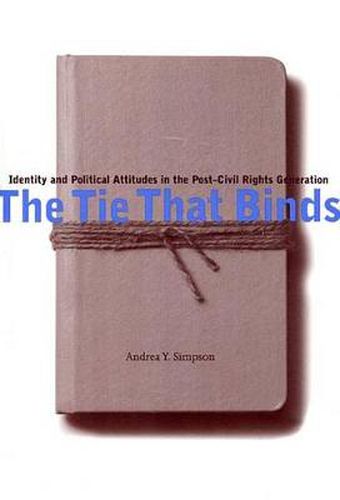Readings Newsletter
Become a Readings Member to make your shopping experience even easier.
Sign in or sign up for free!
You’re not far away from qualifying for FREE standard shipping within Australia
You’ve qualified for FREE standard shipping within Australia
The cart is loading…






What does it mean to be black in a nation increasingly infatuated with colorblindness? In The Tie That Binds, Andrea Y. Simpson seeks to answer this crucial question through the prism of ethnic and political identification.
Historically, African Americans have voted overwhelmingly Democratic in governmental elections. In recent years, however, politically conservative blacks–from Clarence Thomas to Louis Farrakhan to Ward Connerly-have attracted much of the media’s gaze. What is the nature of black conservatives’ constituency, and is it as strong and numerous as conservatives would have us believe? To what extent, if at all, does black conservatism stem from a weakened sense of collective racial identity?
Simpson tackles the peculiar institution of black conservatism by interviewing college students to determine their political attitudes and the ways in which these are shaped. The result is a penetrating interrogation of the relations between political affiliation, racial identity, and class situation.
$9.00 standard shipping within Australia
FREE standard shipping within Australia for orders over $100.00
Express & International shipping calculated at checkout
What does it mean to be black in a nation increasingly infatuated with colorblindness? In The Tie That Binds, Andrea Y. Simpson seeks to answer this crucial question through the prism of ethnic and political identification.
Historically, African Americans have voted overwhelmingly Democratic in governmental elections. In recent years, however, politically conservative blacks–from Clarence Thomas to Louis Farrakhan to Ward Connerly-have attracted much of the media’s gaze. What is the nature of black conservatives’ constituency, and is it as strong and numerous as conservatives would have us believe? To what extent, if at all, does black conservatism stem from a weakened sense of collective racial identity?
Simpson tackles the peculiar institution of black conservatism by interviewing college students to determine their political attitudes and the ways in which these are shaped. The result is a penetrating interrogation of the relations between political affiliation, racial identity, and class situation.